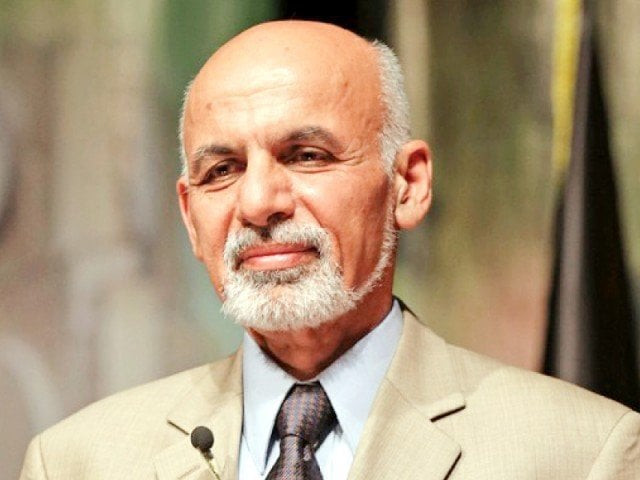Neighborhood watch: Kabul seeks direct talks with Taliban
Experts feel China best suited to pick up mantle after Pakistan’s exclusion from peace process

Peace and reconciliation will be achieved by the state of Afghanistan alone through its own mechanisms. PHOTO: FILE
“Peace and reconciliation will be achieved by the state of Afghanistan alone through its own mechanisms,” Ghani said at a news conference in Kabul on August 10. “We do not want Pakistan to bring the Taliban to peace talks. On the contrary, we want Pakistan to stop activities of those on its soil who are waging a rebellion against Afghanistan.”

As Pakistan and all other major stakeholders had long insisted they would cooperate and support the Afghan-owned process, they are bound to honour their commitments and fully back whatever mechanism Kabul will now put in place vis-à-vis the peace process.
President Ghani’s refusal to give Pakistan a leading role should not be considered a matter of ego as his frustration at the killing of 70 Afghans in less than a week is genuine. However, many would not agree with his decision to directly charge Pakistan for the attacks.
Islamabad’s response to Ghani’s refusal was mature and everyone in Pakistan expects the leadership not to consider it their right to involve itself in a process when Afghan rulers are not willing to accept this role.
“We still feel reconciliation is the best option but in this we will be guided by Afghanistan’s priorities as it is an Afghan-led and Afghan-owned reconciliation and peace process,” Pakistan’s top security and foreign adviser Sartaj Aziz told journalists this week.
“So, we will continue to help Afghans in whatever way we can to bring peace to Afghanistan,” Aziz said on Thursday when asked about Ghani’s decision. He was speaking at a joint press conference with Iranian Foreign Minister Javad Zarif.

Internal challenges
Ghani now faces the major challenge of encouraging the Taliban to sit face-to-face with his administration.
The Taliban’s new leadership under Mullah Akhtar Mansoor has ruled out direct talks with Kabul which they claim is more of a “puppet” and powerless than Karzai. The Taliban were upset at Ghani’s decision to sign the controversial bilateral security pact – which legalises the stay of the ‘invading’ American and Nato troops – just hours after he was sworn in as president on September 29 last year. Karzai had refused to sign the agreement for months over his criticism of US policies in the country.
Abdul Hayee Motmaen, a senior adviser of the Taliban political committee, has also ruled out direct talks with the Kabul administration.
“The Islamic Emirate does not favour any such talks which give an impression that we recognise a puppet regime,” Motmaen told The Express Tribune over the telephone from an undisclosed location this week “The emirate of Afghan Taliban and mujahideen do not want it as it would have a negative impact on the morale of the mujahideen.”
However, Motmaen did not exclude political options alongside armed struggle.
In China they trust
As Taliban keep the political option open yet reject direct talks, countries whose role could be acceptable to both parties can now step into the mix.
Pakistani and Afghan analysts believe China could be the most trusted broker in view of its relations with Afghanistan and other regional countries. China had been actively involved in the political process in Afghanistan after the withdrawal of most foreign troops.
Pakistan Senate Defence Committee Chairman Mushahid Hussain says China is more than willing to play a proactive role to promote peace in Afghanistan, as it has already hosted meetings with the Taliban in its Xinjiang province earlier this year.
“China’s readiness, willingness and ability to play a role in promoting peace talks among warring Afghan factions has the full support of both Pakistan and the US,” he told The Express Tribune. “This is also the single most important strategic development since the Americans announced their military exit from Afghanistan after their failed and flawed intervention following the 9/11 attacks.”
Afghan columnist and political commentator Nazar Mutmaen also believes China could be the most trusted player in the peace process.
Published in The Express Tribune, August 15th, 2015.



















COMMENTS
Comments are moderated and generally will be posted if they are on-topic and not abusive.
For more information, please see our Comments FAQ